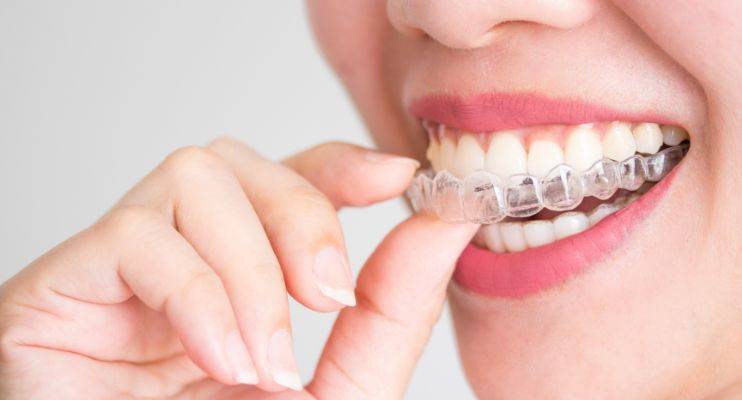
When it comes to orthodontic treatments, the decision between Invisalign and traditional braces often goes beyond aesthetics. While both options effectively straighten teeth, Invisalign offers unique psychological benefits that set it apart, particularly in areas of self-esteem and mental health. Let’s explore how Invisalign stands out as a confidence booster and stress reducer compared to traditional braces.
The Emotional Toll of Traditional Braces
Dr. Rangiani, a distinguished orthodontist offering Invisalign in Alexandria, VA, highlights that while traditional braces are effective, their conspicuous appearance and associated stigma can often diminish a person’s self-confidence. The Emotional Toll of Traditional Braces
Traditional braces, though effective, can sometimes negatively impact a person’s self-image. The metallic wires and brackets are conspicuous, often leading to feelings of self-consciousness. Adolescents and adults alike may feel hesitant to smile, speak publicly, or engage in social interactions, fearing judgment or unwanted attention.
For teenagers, a group already vulnerable to peer pressure and societal standards, wearing braces can heighten insecurities. They may become the subject of teasing, which can lead to feelings of isolation or embarrassment. Adults undergoing orthodontic treatment with braces may experience similar challenges, feeling out of place in professional or social settings.
Invisalign: A Discreet Confidence Booster
Invisalign’s clear aligners provide a nearly invisible solution to teeth straightening. This discretion alone is a significant confidence booster, allowing users to maintain their natural appearance throughout the treatment. For those who may already struggle with self-esteem, the ability to smile without noticeable hardware can make a world of difference.
Moreover, Invisalign aligners are removable. This flexibility means individuals can remove them for short periods, such as during meals, public speaking engagements, or special events, reducing anxiety about their appearance.
Enhancing Mental Health Through Comfort and Convenience
Traditional braces come with physical discomfort: wires can poke the inside of the mouth, and frequent adjustments can cause soreness. These factors can exacerbate stress, making the orthodontic journey feel daunting.
In contrast, Invisalign aligners are designed for comfort. Made of smooth, BPA-free plastic, they minimize irritation. Additionally, the aligners are replaced approximately every two weeks, eliminating the need for regular tightening appointments. This streamlined process reduces the anxiety often associated with orthodontic visits.
Empowering Autonomy
Invisalign gives users more control over their treatment. Since the aligners are removable, individuals can maintain their regular oral hygiene routines more easily than with traditional braces. This autonomy fosters a sense of empowerment, which can positively influence mental health. Feeling in control of one’s treatment can reduce feelings of helplessness and enhance overall satisfaction.
Social Acceptance and Professional Confidence
For adults, Invisalign offers a solution that aligns with professional environments. Many adults postpone orthodontic treatment out of fear that traditional braces might affect their professional image. Invisalign eliminates this concern, allowing individuals to pursue orthodontic care without compromising their confidence in meetings or presentations.
Similarly, teenagers who use Invisalign often report feeling more socially accepted compared to their peers with traditional braces. This social acceptance can play a critical role in preventing mental health issues like anxiety or depression.
Long-Term Psychological Benefits
Beyond the treatment period, Invisalign users often experience a significant boost in self-esteem once their teeth are straightened. A confident smile can improve social interactions, enhance professional opportunities, and positively affect personal relationships. These outcomes contribute to lasting mental health benefits, reinforcing the value of investing in Invisalign.
Conclusion: A Smile That Supports Mental Wellness
While both Invisalign and traditional braces achieve the goal of a straighter smile, Invisalign provides psychological advantages that extend beyond aesthetics. By offering a discreet, comfortable, and flexible solution, Invisalign helps individuals maintain their confidence and mental well-being throughout the orthodontic journey. Whether for teenagers navigating social pressures or adults balancing professional demands, Invisalign paves the way for a healthier smile—and a healthier mind.




